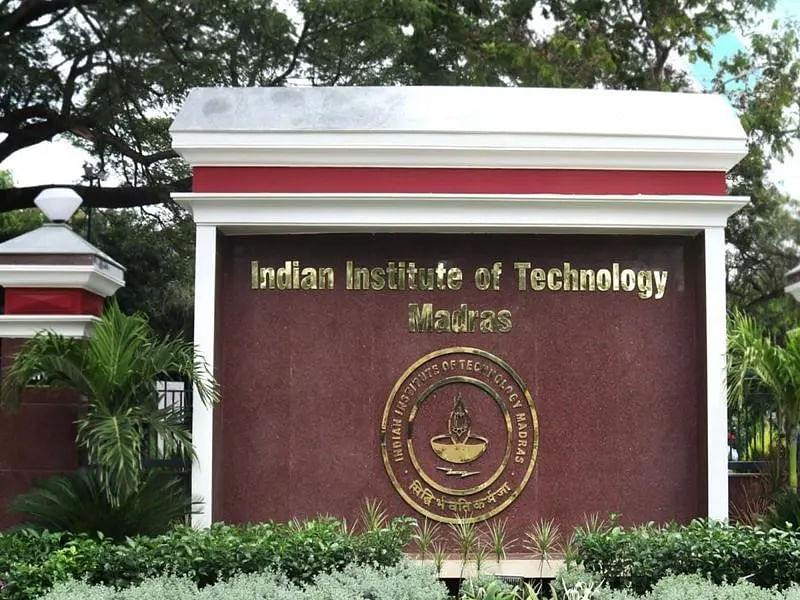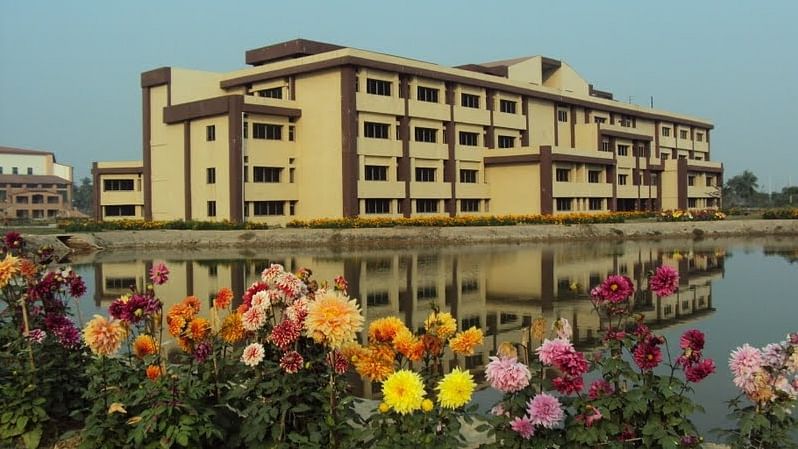The benefits of a B.Tech degree include diverse job roles, lucrative salary prospects, jobs at government agencies, positions at tech companies, acquisition of technical skills and more.
Table of Contents
Tech geeks usually ask about the benefits of a B.Tech degree. It not only opens up various career opportunities but also equips individuals with practical skills, knowledge, and a competitive edge in the job market.
Today, an engineer earns an average salary of 7 lakh per annum, according to Glassdoor. This means that a Bachelor of Technology (B.Tech) degree is the most sought-after undergraduate program for students aspiring to enter the technical and engineering fields.
However, if students still remain confused, this article explores the multifaceted benefits of a B.Tech degree. Learn why it remains a popular choice not only among students but also among companies worldwide.
What is a B.Tech Degree?
A Bachelor of Technology (B.Tech) is an undergraduate academic degree focused on engineering and technology disciplines. Typically spanning four years, this program provides students with a solid foundation in the principles of engineering, mathematics, and applied sciences.
A B.Tech degree is designed to produce graduates who are technically sound, innovative, and capable of contributing to various sectors of the economy. Moreover, the demand for engineering students never fades due to the emergence of new technologies, offering promising career opportunities.
Also Read: List of Engineering Entrance Exams for B.Tech Admission 2025
What are the Benefits of a B.Tech Degree?
A B.Tech degree requires years of dedication and effort. Students have to begin their journey from school to appear for entrance exams like JEE Main, VITEEE, JEE Advanced and more. Further, the duration of the program is itself long.
However, all these efforts and hard work are never in vain; there’s always a brighter side. Candidates can reap several benefits of a B.Tech degree.
But what benefits can one leverage after completing their B.Tech? Let’s have a look at some top benefits of a B.Tech degree which include the following:
Diverse Job Roles and Industries:
One of the most prominent benefits of a B.Tech degree is the sheer variety of career opportunities it offers. Graduates can find roles across multiple industries, including:
- Information Technology (IT): Software engineers, system analysts, and cybersecurity experts.
- Manufacturing: Design engineers, process managers, and product development specialists.
- Telecommunications: Network engineers, RF planners, and technical consultants.
- Energy and Utilities: Electrical engineers, environmental engineers, and power systems engineers.
- Construction and Infrastructure: Civil engineers, project managers, and urban planners.
These diverse roles span both the public and private sectors, offering job stability and growth across global markets.
Specialization Options with a Wide Range of Disciplines
Another advantage of pursuing a B.Tech degree is the ability to specialize in various engineering fields, depending on individual interests and career goals. Some common specializations include:
- B.Tech Computer Science Engineering (CSE)
- B.Tech Mechanical Engineering (ME)
- B.Tech Civil Engineering (CE)
- B.Tech Electronics and Communication Engineering (ECE)
- B.Tech Electrical Engineering (EE)
- B.Tech Chemical Engineering (ChE)
These disciplines provide students with a focused skill set, making them highly qualified for specific industries and career paths. Whether it's aerospace, biotechnology, or software development, B.Tech offers a robust platform for specialization.
Also Read: Printing Technology
Technical and Analytical Skill Acquisition
A B.Tech program emphasizes the development of critical technical skills that are essential in the modern job market. These skills include:
- Problem-solving abilities: Engineers are trained to approach problems methodically, using scientific and mathematical principles.
- Programming and coding: Specializations like Computer Science expose students to programming languages such as Python, Java, C++, and more.
- Design and simulation: Mechanical and civil engineers learn to create designs and run simulations to test their feasibility and efficiency.
- Data analysis: Engineers working with big data and artificial intelligence use statistical tools to extract meaningful insights.
Beyond technical know-how, B.Tech students also develop strong analytical and logical thinking abilities, which are transferable across various industries.
Hands-on Training and Internship Opportunities
One of the key advantages of a B.Tech degree is the emphasis on practical learning. Universities and engineering institutes incorporate laboratory work, industrial visits, workshops, and internships into the curriculum. This experiential learning allows students to:
- Apply theoretical knowledge: Practical sessions and labs provide opportunities to experiment with real-world applications of engineering principles.
- Gain industry exposure: Internships offer students valuable work experience, making them more employable and helping them understand the nuances of the job market.
- Develop problem-solving skills: Hands-on experience helps students approach engineering challenges with confidence and creativity.
Such training helps bridge the gap between classroom learning and the demands of professional life.
Also Read: NIT B.Tech Fees Structure 2025
Contribution to Technological Advancement
A B.Tech degree fosters a spirit of innovation and research. Many institutions offer opportunities for students to engage in cutting-edge research projects, often leading to technological breakthroughs. Students can contribute to fields such as :
- Robotics and automation
- Artificial intelligence and machine learning
- Sustainable energy solutions
- Biomedical engineering and healthcare technologies
This focus on research not only benefits industries but also nurtures a generation of innovators and thought leaders who can drive future technological advancements.
Competitive Salaries and Growth Prospects
One of the most appealing benefits of obtaining a B.Tech degree is the potential for a lucrative career. Engineering graduates often command higher starting salaries than those from non-technical fields. According to recent surveys, B.Tech graduates in fields like software engineering, data science, and petroleum engineering often have some of the highest salaries in the job market.
As professionals gain experience, their earning potential continues to rise, with many moving into managerial or specialist roles. The combination of technical expertise and industry demand ensures that B.Tech graduates enjoy strong job security and career advancement prospects.
For example, a software engineer in India with 0-1 years of experience earns an average of 3.50 Lakhs annually. At the, an individual with 8-10 years of experience may earn an average salary of 14.00 Lakhs per year.
Also Read: Jobs Await Students of B.Tech
International Scope and Opportunities
A B.Tech degree is recognized globally, giving graduates the flexibility to pursue careers abroad. Countries such as the United States, Canada, Germany, and Australia actively seek skilled engineers to fill positions in various high-demand sectors. International opportunities allow B.Tech holders to:
- Work on global projects in industries like aerospace, automotive, and IT.
- Access higher education through international scholarships and research programs.
- Develop cross-cultural competencies by collaborating with diverse teams from around the world.
The global recognition of the B.Tech degree makes it a passport to international career prospects.
Entrepreneurial Prospects at Startups and Technological Ventures
In addition to traditional job roles, a B.Tech degree provides a strong foundation for those interested in entrepreneurship. With a deep understanding of technology and innovation, many engineering graduates go on to launch their own startups. Areas of opportunity for tech-based businesses include:
- Software and app development
- IoT (Internet of Things) products
- Artificial Intelligence solutions
- E-commerce platforms
Engineering graduates with a passion for innovation and problem-solving often find success in the entrepreneurial space, contributing to economic growth and job creation.
Also Read: Courses and Career Options After B.Tech Mechanical Engineering
Helps Build Industry Connections and Alumni Networks
Engineering programs, especially B.Tech, provide ample networking opportunities. Students can connect with industry professionals, alumni, and peers through:
- University-organized events: Seminars, workshops, and conferences introduce students to industry leaders and experts.
- Alumni networks: Many top universities have strong alumni associations that provide mentorship and career opportunities to fresh graduates.
- Professional associations: B.Tech graduates can join technical societies such as IEEE, ASME, or ACM, further expanding their professional network.
Building these relationships is crucial for career development and opens doors to job opportunities, partnerships, and collaborations.
Gateway to Masters and Doctoral Programs
For those interested in continuing their education, a B.Tech degree serves as an excellent foundation for pursuing advanced studies, such as:
- M.Tech (Master of Technology)
- MBA (Master of Business Administration)
- Ph.D. in Engineering
Graduate degrees offer opportunities for specialization, research, and leadership roles, further enhancing career prospects. B.Tech graduates also have the option to transition into interdisciplinary fields, such as data science, business analytics, and management.
Also Read: MBA After B.Tech
Public Sector and Government Job Opportunities
Many B.Tech graduates opt for government jobs, which are known for their stability, benefits, and work-life balance. Opportunities in the public sector include:
- Public Works Departments (PWD)
- Defense Research and Development Organization (DRDO)
- Indian Space Research Organization (ISRO)
- National Thermal Power Corporation (NTPC)
Government jobs often come with added perks, such as housing allowances, pensions, and career growth through promotions and examinations.
Prestige and Recognition: Social Status and Professional Prestige
In many cultures, obtaining a B.Tech degree is associated with high social status and professional prestige. Engineers are often seen as problem solvers and innovators, contributing to national development and technological progress.
The professional title of “Engineer” carries weight and respect. It helps enhance the social and professional standing of B.Tech graduates.
Personal Growth: Development of Critical Thinking and Leadership
Beyond technical skills, a B.Tech degree also contributes to personal development. The rigours of the program foster the following:
- Critical thinking and problem-solving skills
- Teamwork and collaboration
- Time management and discipline
- Leadership and project management abilities
Also Read: Best 5 Engineering Branches for Future With High Salary
These skills are valuable not only in professional settings but also in everyday life, helping individuals navigate challenges and achieve their goals.
The benefits of a B.Tech degree are vast and varied, offering career opportunities across industries, high earning potential, and a platform for innovation and research. With a strong focus on practical learning, skill development, and specialization, B.Tech graduates are well-equipped to succeed in both traditional job roles and entrepreneurial ventures.






































POST YOUR COMMENT